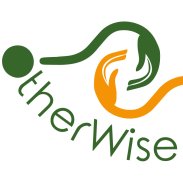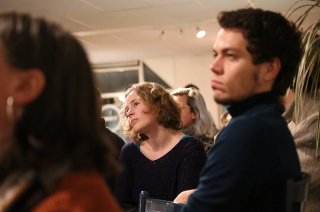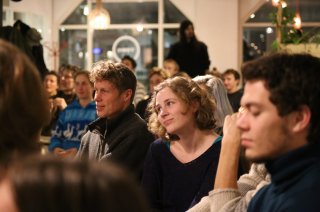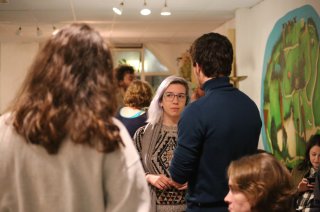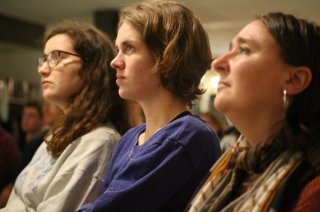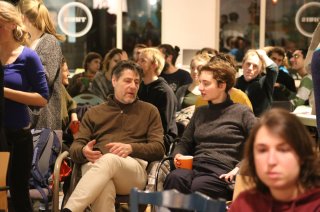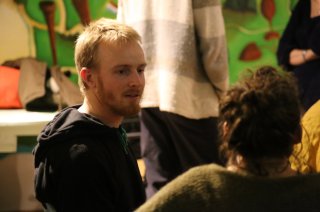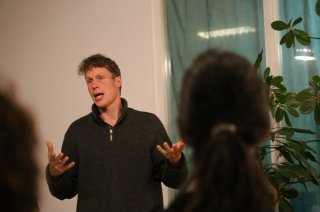
News
Recap Ecovillages: Beyond stereotypes - Introducing Ecocommunities
On Monday March 20 OtherWise organised a lecture about Ecolvillages. This was the first of six events in which Otherwise will be exploring the theme of Eco-communities in relation to social innovation and environmental resilience. Martha wrote a small recap of this event for us!
A while I go I found out that a lecture series called “Ecovillages: Beyond Stereotypes” was going to take place in Wageningen. I am quite open to the idea of ecovillages already, but I decided I still needed some exploring of the term and indeed, some clearing up of stereotypes or prejudices that I have in my head. So on March 20th there I was, at Thuis, with an open mind and a tea in hand.
The evening started with a talk from Xander Kingma, the guy who pioneered this whole project. He was just deeply interested in the general theme of ecovillages and decided to take action by organizing this little half research project, half education programme for people of Wageningen.
The research question was clear: can eco-communities contribute to a better social and environmental situation for our world? The aim of this 6-week lecture series is to (try to) find out. The way to do so will be by hearing invited lecturers talk, each and every one of them involved in eco-communities somehow. Furthermore, 2 excursions will be included as part of the research project: one to an eco-tribe and another to an eco-neighbourhood. Two different approaches to the same goal: to live more sustainably.
In addition to the lectures, everyone is invited to participate in an online platform to share information, ideas, projects, or anything that comes to mind regarding the topic. The aim is to stay connected, share knowledge and get inspired by each other; as of course inspiration doesn't have to come only from guest speakers. After all, we are all confronted with a research question and it is everyone’s duty or right (whatever you prefer) to contribute to the conclusion!
The second part was a lecture by the founder of Ppauw Ecovillage in Wageningen, Eric Groen. He didn’t have any PowerPoint to back him up, it was only he, himself and him – and in fact nothing else was needed. He just had to tell his story in his own words, and that was more than enough. He explained how he wasn’t finishing any of his conventional studies – philosophy, biology, physics… All started but not finished. He realised afterwards what he truly enjoyed was doing art. Not any art, but sustainable art. And not any sustainable art, but a sustainable art that can get to the people, make them doubt themselves, change public opinion. And in between this whole process, he had time to squat a piece of land (after all, he is also a “professional squatter”) and create the community that is still now living there: Ppauw ecovillage. Of course, some problems with the municipality arose, but they thrived and are still up and running.
They have welcomed many students, international people, children in day trips from school… They are welcoming to newbies. They live off-grid, and therefore more sustainably. Of course, if you need to bring water to the ecovillage in order to have drink water in your house, you will try to waste as little water as possible. Sustainability somehow arises naturally in their community. They use whatever they have available to build new buildings (such as a communal kitchen they built in around 2 months) and have a bigger network with other places in Wageningen with whom they exchange goods and services. In his own words, “by keeping it local he became global”.
In conclusion, and if I had to define the evening with just one word, I would choose the word “Inspiring”. It is inspiring to see interested people who are motivated enough even to organize this. And even more so to see people who have succeeded at building a community like that. It makes us – in my case, a MSc student trying to lead a better life for everyone – see the whole topic on a new light. It is not only a theoretical thing or an extreme position. It seems a totally feasible option; an alternative approach to what has been stated that is the norm. We have (finally) now realised this norm can be broken, that we can live our lives however we please. And I am more than excited to find out more about how we can do so.
